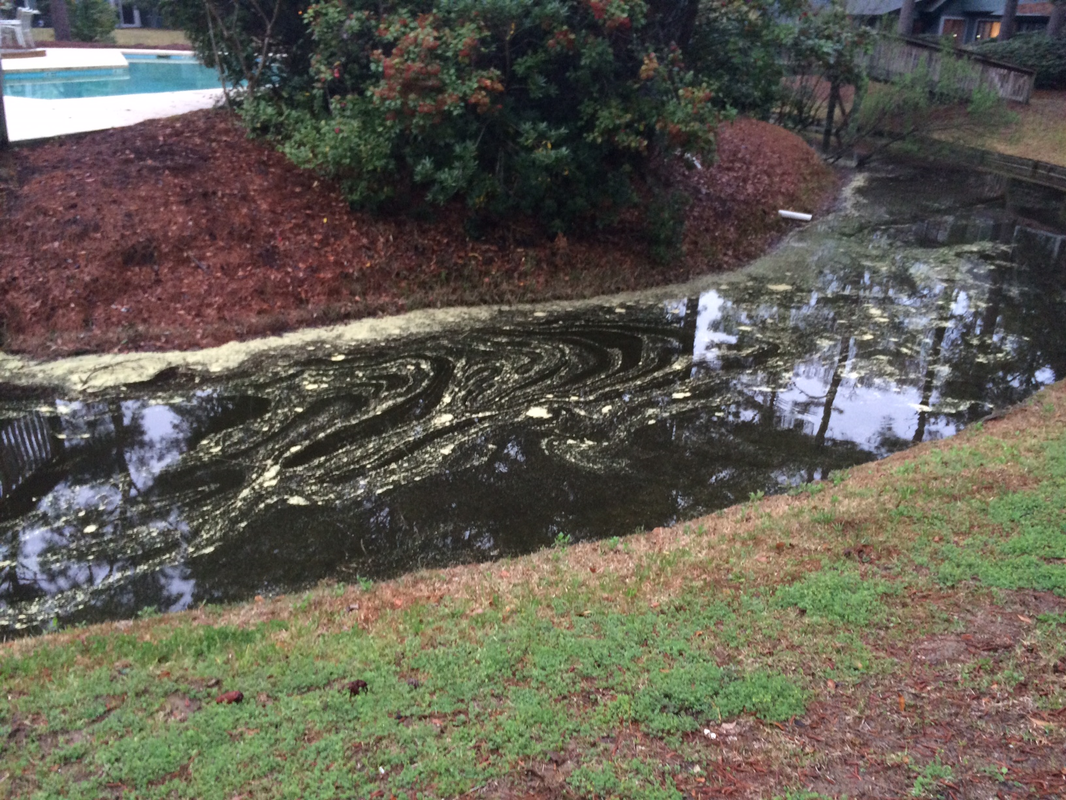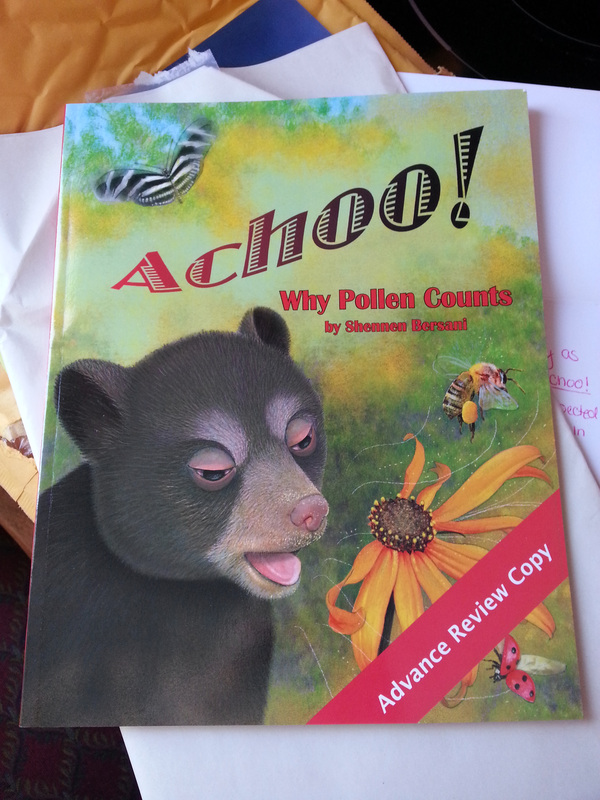http://www.washington.edu/news/2014/02/26/pine-forest-particles-appear-out-of-thin-air-influence-climate/
|
Pine forest particles appear out of thin air, influence climate.
http://www.washington.edu/news/2014/02/26/pine-forest-particles-appear-out-of-thin-air-influence-climate/
0 Comments
Total cute factor - 100% - From USA TODAY - Check out this awesome video of baby bears.
Two Andean bear cubs made their public debut Saturday at the National Zoo. The cubs were named Mayni and Muniri after a public vote. (March 28) AP http://www.usatoday.com/videos/news/nation/2015/03/28/70590720/ While I'm in Boston, still covered in snow!, Heather was kind enough to share some of her South Carolina pollen. Don't worry Boston, it's coming soon.....
My ARC arrived today! We're proud to announce the highly anticipated April 28th, 2015 release of the children's pollen picture book that is already being termed "the standard of children's pollen books", "ACHOO! Why Pollen Counts", by acclaimed author and illustrator, Shennen Bersani and published by Arbordale Publishing. This book is for ages 3-8, however the information and facts are useful to all ages.
Pollen is at the forefront of news. It's critical to the growth of 2/3 of the world's food. It allows scientists to date archeological findings and understand the history of living things and the earth. It is being researched as possible medical aids and cures. It is food to many animals and insects who are important to our ecosystems and food chains. Since it's in our air throughout the entire world's atmosphere, it gets captured in snow flakes and rain drops. It exists outside and inside our homes. It coats items left out of doors and is breathed into our bodies every day. The amount of pollen in our air is on the rise. It is present around the globe throughout every season. Humans suffer from pollen allergies all year long. Due to higher densities, these allergies are also increasing in intensity. It's benefits and necessity to living things are important to all life on earth. Many pollinators are declining in numbers, which has negative impact to life on earth. More than 2/3 of food plants rely on pollination to grow adequately. Bees pollinate 15% of our food plants and are critical to food supplies. Unfortunately, bee populations have declined by nearly 2/3. In some areas they declined even more. In many cases, bees are now rented from bee keepers who truck them to food farms temporarily. It is not yet known for certain what is causing the bee decline, but several theories are under investigation. If the decline continues, many of the world's foods may no longer exist, or will grow inadequately. Another plant pollinator is bats, which are also in serious decline, and they are also critical to many world ecosystems. Pollen used to cause allergies only in the Spring and Fall. It is now known that it is in our air all year long and increasing in density each year. In Winter It comes from other parts of the world where plants give off pollen in high amounts and carried via the jet stream and global air currents. There are also local plants that give off pollen during Winter. Pollen counts have become higher and higher throughout the year, therefore many more people now suffer from pollen allergies all year long. Also, new and different pollen spores are being discovered regularly. It has recently been forecast that increases in pollen in our air will continue at higher and higher rates year over year with no prediction of an end to these increases. Pollen has become essential to archeological dating. Scientists can now date fossils, bones, cities, ruins, and mummified remains by pollen found on it or in the surrounding materials. Specific pollen spores were on earth at various times and in specific regions. This has become a critical time period designator while studying our beginnings and the beginnings of the earth. In "ACHOO! Why Pollen Counts", Shennen Bersani shows the air in the pine forest thick with pollen. Baby bear lumbers out of his Winter den into the thick forest air rubbing his eyes and sneezing. His Mother and forest friends teach him about bees, pollination, allergy effects, and more. The pages of the book are filled with beautiful and cuddly characters and scenes that are frame worthy art. The floating and swirling pollen makes you want to rub your own eyes. The "For Creative Minds" section in the back of the book provides exceptional details, lesson plan facts, and more. There are also education-rich free teaching aids for teachers or parents, providing 45 pages of teaching and learning activities on Arbordale's website. These include student pre-reading questions, teaching activities, quizzes, puzzles, writing exercises, vocabulary activities, sentence completion exercises, word searches, math problems, and coloring pages. It also includes important information links. Shennen Bersani has created dozens of children's picture books for Arbordale Publishing, Scholastic Publishing, Charlesbridge Publishing, American Cancer Society, and more. She appears on TV and radio shows, presents to children in schools, and presents at association events. Her books have focused on earth and animals, education, and challenges children face. Her research for "ACHOO! Why Pollen Counts" brought her to bee colonies, black bears, pine forests, pollen scientists, researchers, and forecasters. "ACHOO! Why Pollen Counts" may be pre-ordered now and will be available on April 28th, 2015 in hardcover, paperback, English, Spanish, Deluxe Arbordale Publishing eBook (many extra features), Amazon, Kindle, Barnes and Noble, Indie Bound, Powell's, American Bookseller Association, and most independent book sellers. For public relations, marketing, events, or promotions please contact LE Marcoccio via text or phone at 617-893-3311. |
AuthorShennen Bersani, author and illustrator of Achoo! Why Pollen Counts, Wild Fathers, and the illustrator of 40 other children's picture books. Archives
July 2024
Categories |


 RSS Feed
RSS Feed